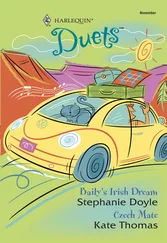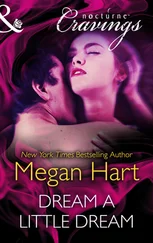I believe Zhang Shu’s defeat can be attributed to the fact that he put her on too high a pedestal. Actually, women are essentially all alike. Xiao Xingxing, in particular, possessed all the female weaknesses: strong on the outside, but weak on the inside, and, while putting up a strong façade, she was in sore need of protection. Moreover, such women seemingly all end up “in a forced marriage.” To court them, a man must be forceful and patient.
Unfortunately, Zhang Shu didn’t understand this at the time.
7
It was at that moment that Ahyuexi entered Zhang Shu’s life.
This silent girl was as quiet as a tree. One heard very little from her save the sound of the sweep of her beautiful head of hair.
Unexpectedly, Zhang Shu learned a lot from Ahyuexi about Dunhuang and Yiseng, obviously some of which was secret family legend. He believed it had a lot of research value. He did find it strange, though, that Ahyuexi knew much more than Yu’er.
She came to see him every day, to watch him write. She always quietly opened the door and quietly sat down beside him. If he didn’t feel the breeze from her fan, he never would have known anyone was sitting by his side. Sometimes, when he could not hear her breathing, he grew afraid.
“Ahyuexi.”
“Huh?”
“Take a break. I’m not in the least hot.”
But the fanning and the soft breeze continued. He glanced at her face and saw how serious she looked. It was as if seeing him engaged in something so sacred that it was an honor for her to fan him.
“Ahyuexi.”
“Huh?”
“You have a pretty name.” Her earnestness touched him and he wanted to make her happy.
Sure enough, she smiled, showing her fine teeth. She lowered her thick lashes. She was as beautiful as she was charming.
“Who chose your name?”
“My father.”
“Zhaxi Lunba?”
“. . How do you know that?” Her dark gray eyes suddenly grew round as saucers.
“If I’m right, then your mom is the woman who looks after Cave Seventy-three. You also have a younger sister by the name of Yu’er.”
“Don’t mention those two good-for-nothings to me.” Ahyuexi was suddenly on her feet, straight as a blade and cold and detached.
“Ahyuexi, why do you hate them so much? Tell me. Didn’t your mother keep you even after remarrying?. . When did you leave them? Who was your stepfather?”
“My stepfather is a wolf with a human face!” Ahyuexi lowered her head. “His name is Dayejisi.”
8
Ahyuexi’s story was a long one, as long as a silent deep gray river.
Ahyuexi’s father was Zhaxi Lunba, a Tibetan, and her mother was Guonu, a member of the Yugur minority. She was born in glorious Dunhuang and seemed to have been fated to lead an unusual life.
Everything happened by chance. For example, if her father Zhaxi Lunba hadn’t become interested in Dunhuang and moved there to further his research, he never would have met Guonu nor would have Ahyuexi been born. And if Zhaxi Lunba hadn’t died, Guonu would not have married Dayejisi nor would have Ahyuexi left home.
Ahyuexi was six years old when Guonu remarried. Two years later the Tibetan nobleman Ciren Lunba came to Dunhuang to take his granddaughter, Ahyuexi, away.
For the first three years, she led the life of a princess.
The Lunba were an influential clan in Tibet. When the British Army invaded Tibet in the early twentieth century, the Dalai Lama fled to Mongolia, and the Lunba clan had the power to decide in matters of life or death.
The Lunbas lived on Chaosheng Avenue, in a two-storey stone house from which they could see the pilgrims coming to Lhasa. Each wing of the house possessed a small shrine, where oil lamps had burned for ages on the carved wooden altars. Seven bowls of holy water had to be changed several times a day, because the spirits might come to drink at any time. The family supported four Buddhist masters, and when anything significant occurred, they would be expected to come and say prayers in rotation.
Ciren Lunba often took Ahyuexi to the Jokhang Temple. The old nobleman was one of the temple benefactors; otherwise he would not have received such special treatment. Ahyuexi wore a crown of gold and precious stones and earrings six cun in length (the longer a person’s earrings, the higher their social status), and with the other members of the clan, male and female, young and old, would make her way on horseback to the Jokhang Temple.
Smoke-blackened columns supported the huge roof. Swirling incense smoke filled the interior of the temple; gold images of Buddhas on the four walls were enshrined and worshiped. In front of them was a strong metal folding screen of coarse mesh. The first Buddha was covered with the jeweled offerings of countless supplicants. Candles had burned for ages on pure gold candlesticks; they had burned for more than a thousand years and had never gone out. A visitor would be ecstatic listening to the drums, gold horns, Dharma gongs, and bagpipes that played on and on as well as the swelling tide of sutra recitation.
Young Ahyuexi would often accompany her grandfather to the top of the temple where they would gaze out over the infinite blue sky. She dreamed of riding a kite on a windy festival day over the snowy mountains to see her mother.
On her tenth birthday a number of guests came to their house. Her grandmother also pickled a lot of fine photinia flowers. The photinia flowers of Tibet grow tall and beautiful. People pick the flower buds, which have not fully developed, wash them, and seal them in glass jars filled with syrup. The flowers slowly swell in the jar, filled with syrup. After opening the jar, they make excellent sweetmeats. Of course there were also zanba and milk tea, things the Tibetans had to have, but which Ahyuexi wasn’t very fond of.
Ahyuexi’s fate was decided on that day.
Two elderly and prominent lamas dressed in red and gold robes held a map of the stars and began to emit a low guttural sound not unlike the large dharma horns. The sound slowly rose in pitch like a golden wire screeching in the wind. The moment the sound abruptly ended, she heard several syllables explode: la-de-rui-mi-qiao-nan-qi-ge. She saw two tall pointed hats of Buddhist masters glowing golden yellow.
9
Xiao Xingxing met Director Tang a month after she arrived in Dunhuang. Tang Renxia, the director of the Dunhuang Cultural Research Institute, was well connected with the Chinese art world and was of noble character and high prestige. As a young man, Tang Renxia studied art in France, and while there he met and married his now-ex-wife Ai Lu. Just after liberation and burning with enthusiasm to return to China to take part in reconstruction, he and his wife divorced. They had a daughter by the name of Wei.
Tang Renxia’s eyes lit up when he saw Xingxing. According to him, something about Xingxing reminded him of Wei. Xingxing carried a personal letter of introduction from the director of the Central Academy of Art. She scrutinized this legendary figure.
Tang Renxia was very amiable, and though he was in his sixties or seventies, he didn’t show his age in the least. His eyes sparkled, but he had very slight bags under his eyes. His forehead was broad and smooth. Xingxing found him exceptional.
“I’ve seen your paintings. I was in Beijing at the time of the Halfway Exhibition.” Tang Renxia gestured for her to have a seat. “Your works exhibit intelligence, you are very skilled, and have a great future ahead of you. . since you are here, I’ll get to the point. We’re currently assembling a team to make a copy of The Transformation of the Western Paradise . What do you say? Are you interested in joining?”
Xingxing smiled broadly. “Director Tang, to tell you the truth, I’d love to help with the copy work, but I’m not that interested in that particular painting.”
Читать дальше
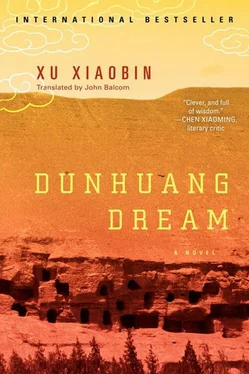


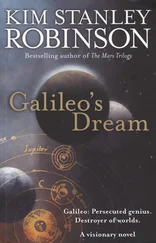
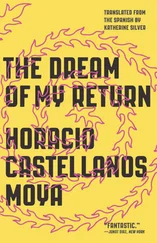

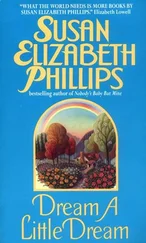
![Theresa Cheung - The Dream Dictionary from A to Z [Revised edition] - The Ultimate A–Z to Interpret the Secrets of Your Dreams](/books/692092/theresa-cheung-the-dream-dictionary-from-a-to-z-r-thumb.webp)
